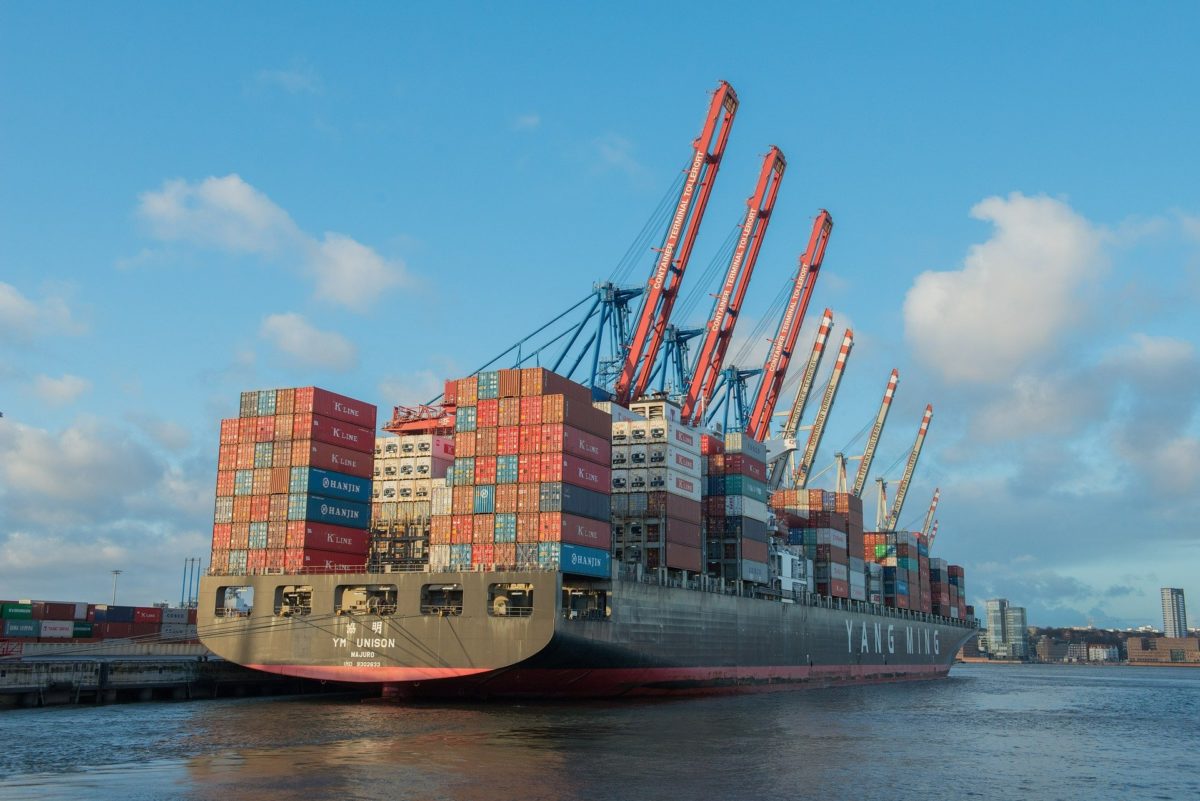The International Renewable Energy Agency (IRENA) has predicted green hydrogen-powered ‘e-ammonia‘ will supply the “backbone of the decarbonization of the shipping sector.”
Renewable-energy powered green hydrogen will be used to form the e-ammonia ‘powerfuel‘ which will contribute 60% of shipping's mid-century decarbonization effort, under IRENA's pathway to a world that will see global heating this century capped at 1.5 degrees Celsius.
Such a fuel transition will require 866-1,299 GW of global solar generation capacity by 2050, according to IRENA, from a projected global clean energy generation capacity of 2,799 GW.
pv magazine print edition
Pick up your copy of the latest edition of pv magazine for an in-depth look at the fire hazard concern of lithium-ion battery systems, with a focus on the blaze at Australia’s Victorian Big Battery which caught the world’s attention. Also, Saul Griffith, the guru of electrification, talks to pv magazine about reshaping the climate conversation; we delve into the evolution of residential PV in China; and we continue our coverage of global PV supply-chain issues and ask: Is there an alternative to Made in China?
A Pathway to Decarbonise the Shipping Sector by 2050, a report recently published by the UAE-based international body, notes the crucial role that could be played by Morocco in achieving zero-carbon shipping, given the nation's vast renewable energy potential and strategic location, with access to the Atlantic and Mediterranean sea lanes.
The 116-page report lists the policies required to support a sector that, in 2018, contributed around 3% of global carbon emissions and is outside national climate change regulations. The suggestions included identifying the world's most promising renewable energy generation sites and establishing a shipping industry body to coordinate renewables plant development in such zones with national governments, to feed a raised appetite for the clean power needed to produce green hydrogen and, indirectly, e-ammonia.
With global trade body the International Chamber of Shipping having last month proposed a carbon levy per ton of carbon and equivalents emitted by tankers with a gross tonnage of more than 5,000 tons, the IRENA report also noted the vital need for a realistic carbon levy to level the playing field for sustainable fuels against fossil fuel-based alternatives.
Popular content
The study estimated e-ammonia costs will fall from around US$143-219/MWh today to around $67-114/MWH by mid-century and predicted ‘blue ammonia' – requiring the use of nitrogen and natural gas-plus-carbon-capture powered ‘blue hydrogen‘ – is likely to play a “transitional role.” However, over-expanding natural gas-powered shipping options runs the risk of stranding such assets further down the line, the report warned.
If IRENA's expectations are borne out, the sector will require 46 million tons of green hydrogen in mid-century, of which 73% will power e-ammonia, 17% e-methanol, and of which 10% will be used directly to power vessels, probably on shorter, domestic shipping routes.
The report stressed the need for global policymakers to act now to expand the storage and refueling options at key ports such as Singapore; Fujairah, in the UAE; and Rotterdam, in the Netherlands; as well as at shipping ‘pinch points' in the Panama and Suez canals and the Straits of Malacca, because large and very large vessels have an operational life of 25-30 years.
IRENA estimated commercial e-ammonia vessels will be operational in 2023 and noted a project by Finnish company Wärtsilä and Norwegian business Grieg Edge which is aiming to develop the world's first greenhouse gas-free renewable ammonia-powered tanker by 2024, with the help of $5.34 million from the Norwegian government.
This content is protected by copyright and may not be reused. If you want to cooperate with us and would like to reuse some of our content, please contact: editors@pv-magazine.com.



1 comment
By submitting this form you agree to pv magazine using your data for the purposes of publishing your comment.
Your personal data will only be disclosed or otherwise transmitted to third parties for the purposes of spam filtering or if this is necessary for technical maintenance of the website. Any other transfer to third parties will not take place unless this is justified on the basis of applicable data protection regulations or if pv magazine is legally obliged to do so.
You may revoke this consent at any time with effect for the future, in which case your personal data will be deleted immediately. Otherwise, your data will be deleted if pv magazine has processed your request or the purpose of data storage is fulfilled.
Further information on data privacy can be found in our Data Protection Policy.